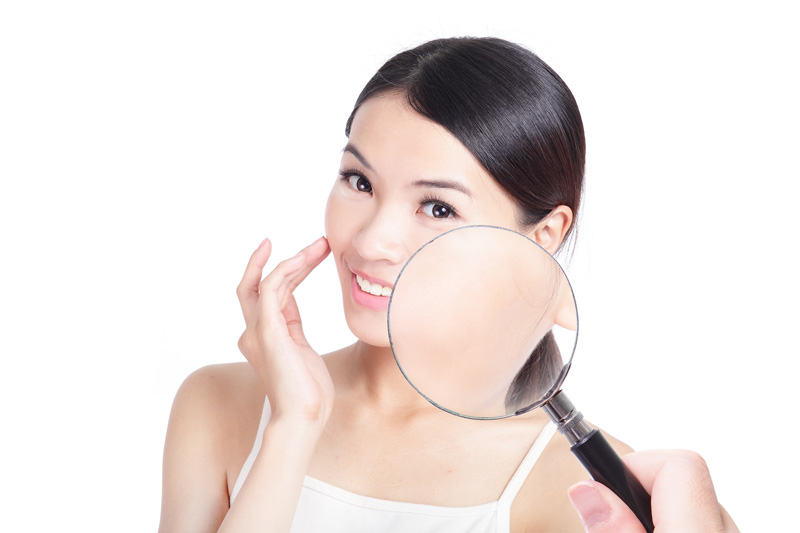Acne
What is acne?
The term acne is used to describe a condition that may include comedones (blackheads and whiteheads), red pimples, blemishes and even large nodules. The condition affects largely the face, and can appear also on the shoulders, back, chest, arms, and buttocks.
The most common acne develops during adolescence, and for some it can last throughout their adulthood. Acne often, but not always, runs in families. For instance if your parent has severe acne, you are more prone to having it as well. Fortunately, treatments exist and treatments that help teens can also help adults.
What causes acne?
The cause starts with the sebaceous glands connected to hair follicles. These glands of the skin secrete an oily material called sebum, which normally softens and lubricates the skin. The sebaceous glands become most active at puberty owing to increased hormonal levels, particularly testosterone, which cause glands to generate more sebum. Thus, causing oily skin. Acne will result when the oil and dead skin cells clog the sebaceous glands connected to the hair follicles. Consequently, the blockage can lead to closed comedones (whiteheads) or open comedones (blackheads). The black color is not due to dirt, but rather from chemical changes in the cells. As follows, a natural bacteria called Propionibacterium acnes thrives off the sebum, overgrows, and attracts your body’s immune cells, which leads to inflammation and red bumps or nodules.
Will the acne go away?
In most patients, acne tends to subside after puberty or in their late teens or early twenties. Some patients continue to experience acne throughout adulthood, mostly owing to hormonal changes. For instance, in women acne can arise before or during menstruation or as a result of pregnancy. In men, the hormone androgen will cause the follicular glands to enlarge and generate more sebum (oil). The use of certain steroids generates similar conditions. Nevertheless, it is impossible to predict when acne will appear or disappear without treatment. While the condition is active, it may alternately erupt and then improve only to erupt again.
What things make Acne worse?
Severe or prolonged stress may aggravate acne. That’s why acne may flare up during stressful times such as examinations, weddings, new jobs, etc. As mentioned earlier, before menstruation acne can resurface because of the influence of hormonal factors. As for food, more studies have revealed a connection between high glycemic foods and acne. Many experts maintain eating high glycemic foods results in hyperinsulinemia, a condition were there are surplus levels of insulin circulating in the blood. Hyperinsulinemia can jump start acne breakouts, in particular individuals already prone to acne. Hyperinsulinemia initiates imbalances in other hormones producing higher levels of androgen bioavailability and insulin-like growth factor – two hormones directly linked to acne. Studies of chocolate and soda pop have yet to prove a cause and effect relationship with acne. However, some patients find that avoiding these and other foods will improve their complexions. If you find that certain foods like chocolate, fatty foods, or excessive amounts of sweets seem to aggravate your condition, it is best to avoid them. In general, the best diet for those with acne is a well-balanced one with plenty of water.
Rubbing and scrubbing of the face will eventually aggravate acne. Cleansing 2 to 3 times a day is sufficient, but washing excessively may cause more inflammation. Other sources of friction, such as wiping or constant touching of an area of the skin affected with acne, or the pressure from helmets, cell phones, tight collars, or backpacks may also have similarly worsening effects.
Picking or squeezing of acne lesions should also be avoided as it may lead to more irritation, inflammation, and prolongation or redness as well as scarring.
What about cosmetics and Acne?
Oil-based skin products and cosmetics should be avoided as this can lead to further blockage of the skin’s pores. It is best to avoid heavy greases or gels in the hair especially if you have acne around the hairline. Look for cosmetics that are “oil-free.”
MD Beauty Secrets’ Acne Solutions:
MD Beauty Secrets has a skin care line that will address your acne problems. The treatment we provide is a gradual process that will not only stop acne breakouts but will repair the skin; you won’t be left with scars but rather smoother and glowing skin. Our skin care products are oil-free, and for your convenience and well-being we have a physician to help guide you through your acne treatment.
- Significance of Benzoyl Peroxide:
- Significance of Glycolic and Salicylic Acids:
- Significance of Retinol:
To compliment your acne treatment, MD Beauty Secrets has developed moisturizers and a makeup line. We offer oil-free moisturizers with beneficial properties, such as vitamins and green tea. The acne treatment will leave your skin sensitive to sun exposure. Therefore, sunscreen is an imperative addition to your treatment. On our website under the Protect tab we provide a selection of sunscreen moisturizers that will protect you from free radicals as well as UVA and UVB rays. In addition, our face makeup provides必利勁
SPF. Our makeup line also delivers coverage without feeling heavy or looking excessive or thick. The face makeup is raw natural, meaning it is talc-free, paraben-free, fragrance-free, oil-free, and non-comedogenic. It’s formulated to minimize the appearance of pores and fine lines while creating a natural matte finish for the face.

